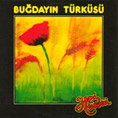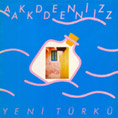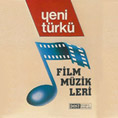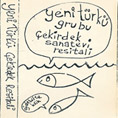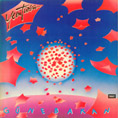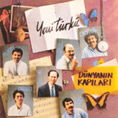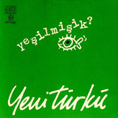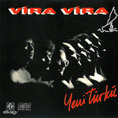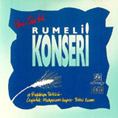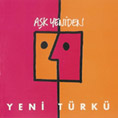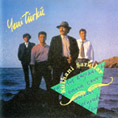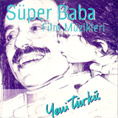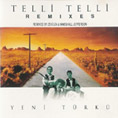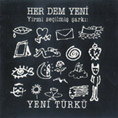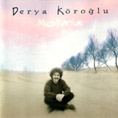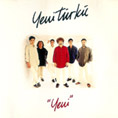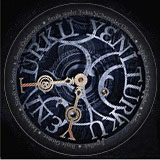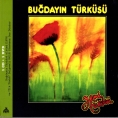HISTORICAL SETTINGS: HOW & WHEN
YEARS OF TURMOIL
YENİ TÜRKÜ came into being in 1978, in Ankara.
Those were days of social upheaval in Turkey. With an ever deepening economic crisis at the background, radical youth movements originating from 1968 and intense polarization of political stands in far left and right resulting in rural and urban terror were precipitating a new military intervention. The not so immaculate Turkish democracy was in peril. Bloodshed was commonplace.
There was, beside the political differences, an irreconcilable cultural rift slashing through the society: On one hand, the traditional rural mass was hostile to westernization and traditional-Islamic-fundamentalist reactions blaming the "satanic west" were gaining momentum, while in the cities, a pocket of urban population, regarded itself quite naively to be no less European than the people of any other European country, almost totally refusing its pre-republic roots and underestimating the enduring strength of tradition and indigenous culture, even being embedded in their own make-up. Both attitudes fell quite far from the realities of Turkey.
The social make up of the country was still heavily rural, pulling the already blurred social awareness to simpler, intolerant and harsher molds: only in the mid-1980's did the village population became less than half of the whole. The closed economy, was basically a state run affair, with huge annual budget deficits. TV and radio broadcasting were under state monopoly. Turkey was still somewhat like a big unhappy village, with big problems.
Then came the expected military intervention (1980) and years of duress and oppression.
THE INDEPENDENT PATH TO A NEW SOUND
YENİ TÜRKÜ, was a calm but resilient urbane reaction to -and a product of -all that was happening around. The band, though having been influenced by some positive aspects of socialist views, refused to be identified with or slavishly propagate dogmatic radical leftist trends. It tried to look further out to the external-world, trying to transcend hostilities fostered by all sorts of prejudices.
The Beatles, Jimi Hendrix, Janis Joplin, Otis Redding, the Rolling Stones, Pink Floyd, Joan Baez, Santana, The Doors, were listened to with enthusiasm. For a small urban minority they all meant a lot. But how was a bridge between the western culture and "the roots" to be constructed ?
How would the contradicting cultures, in whose crossfire generations were being trapped, be reconciled? How would the new moods, feelings, the daily problems of the individual of contemporary Turkey find their expression in modern musical formats? Where were those formats?
The band did not have a hefty list of predecessors; nor did it acquire ready made prescriptions from any miraculous source. Much research and brain-storming had to be done. The young people who joined hands and hearts to find a solution to the puzzle started out their journey in discouraging darkness. Intuition led the way. Greek, Spanish and Latin music had a heavy impact on these early years of the musical evolution of YENİ TÜRKÜ.
Inti Illimani was one important source of inspiration.
The first LP rolled out in 1979.
The reaction to the album was a mixture of widely differing emotions. But it was discernible from the outset that the band had tentatively tapped the right source of energy to propel itself to its set target: It was aiming to reach the newly emerging urban youth with something more relevant than Dario Moreno, Adamo or Los Machucambos. And it got the heartening support it needed so much in the early and immediate enthusiasm of its fans.
WAS THERE A DOMESTIC MUSIC MARKET?
In 1979 When YENİ< TÜRKÜ released its first LP, revenues on sales and the spread of the album were unbelievably disproportionate: The work had been duplicated by thousands of units overnight and supplied to the gray-market. In those days, musical production was not at all conceived of as an industry with a marketplace of its own. Pirate vendors were profiteering in an unregistered business of cassette reproduction and distribution. Legal protection for the intellectual proprietorship was virtually non-existent for musical works of art, either foreign or local. Mechanical royalties were unheard of. There were no rules and regulations.
Those were the days when an occupation related to music was either a salary earning state employment or not an occupation at all. Naturally, not much interest went to this front amateur groups disappeared, disbanded as formal education compelled and oriented music loving youth to "decent" professions. Hence an inevitable ossification and malnutrition of artistic productivity.
But, on the other hand, thanks to the transistor revolution, music was advancing and spreading, creating a wide new base. The rapid spread of transistor recorder-players was continually building a huge unregistered market.
The band survived those years by sheer will-power, with hearty support from its followers with all the members earning their living from their "other" professions.
THE MUSICAL LIFE IN THE EARLY 1980'S
Turkish Folklore is rich and even today quite young as compared with, for instance European folklore, therefore much more retrievable. "Türkü" is the Turkish folk song. A denomination with obvious rural connotations. Turkish Folk Song has an internationally recognized high degree of authenticity. The" aksak" rhythm which is basically Turkish has long been part of the international folklore terminology, the word having been borrowed from Turkish. YENİ< TÜRKÜ means" the new folk song". So the challenge and style were proclaimed in the name of the band: The basically peasant Turkish society was undergoing a rapid transformation which had started before the foundation of the Republic of Turkey by Atatürk, in the late 1920's. 40 years later, the society needed new, contemporary sounds definitely of its own. It was high times… YENİ< TÜRKÜ steered into this direction.
A too simplistic and early evaluation of this intuitive orientation of the band resulted in YENİ< TÜRKÜ's style being dubbed as "authentic-music", as if this were a permanent new format with latent nationalist and pastoral motives, a description which really was nothing but shallow. This categorization later backfired and the group was often blamed, not surprisingly by the originators of the tag, of not being "authentic enough".
SUPERFICIAL CATEGORISATIONS, SIGNS OF AN ARID INTELLECTUAL LIFE
Returning back to the early 1980's and to our subject matter in the narrower sense, we see a proliferation of superficial attempts at categorization and dysfunction generalizations in the general field of music: "Arrangement" meant simply, adoption of Western pop music material translated-into- Turkish. A new genre of music which has appeared in the late 1970's was dubbed "Arabesque". The attribution had really not much to do with a respect for the rich culture of Arabic music as the word apparently suggests: it was, to the contrary, a way of abusing this amorphous ghetto music which did not comply at all with the state fostered official musical culture. "Arab- " implying it was a decadent import from an inferior culture, " -esque" boasting the westernized officialdom seal of the" cultural authority". The 1 by-now-extinct terms (which were carelessly used in the early 1980's and before) " light Western music" and its twin "light Turkish music" (derived from the term "light classical music"), too, carried a sense of official disdain and arrogance, implying popular music, be it in western or "national" clothing, was not weighty and worthy enough for the to-be- westernized brains of the population. These terms, too, were overtly derogatory.
All of that short-sighted, prejudiced tagging was but a sign of weakness of independent intellectual and artistic productive capacities of the society which were routinely impaired through intense and perpetuated state screening by a highly active and heavily armed state bureaucracy" specializing "on fine arts. In those days, heavy sentences of imprisonment were a real threat if one's intellectual or artistic work infringed upon the narrowly demarcated borders of "legal-intellectual-artistic" territory.
Through the years, the situation got better as more or less stabilized strata of a modern, urban society, each with its separate sense of identity emerged; and also the mutual and collective realization that these strata must coexist no matter how different their life styles and world outlook are in respect to each other. While state intervention into cultural affairs gradually lost its virulence.
THE EUROVISION PLIGHT
To get an even clearer picture of the situation, Turkey's Eurovision Song Contest blunders of those days must be briefly dwelt upon. The state radio and television sponsored huge year round organizations to foster the development of "light Turkish music", culminating each year inevitably in a feat of defeat in the Eurovision Song Contest. A lot of behind the doors wheeling and dealing went parallel to the organization and each year a new star was blown to the extent of explosion. Clustered around the state radio and television broadcasting corporation was a greedy autarky of music-producing merchants, which in collaboration with the state employees, operated along the officially prescribed canons.
The objective was Orwellian: to create a sterilized, decent, and totally acceptable (by state censorship yardsticks) “light Turkish music" which at the meantime would prove to Europe what a westernized nice giant Turkey was!
The aim and expenses gigantic, results farcical.
Millions of Turkish TV watchers witnessed the unfair trial of strength of the poor Turkish candidate against a biased and fortified European feeling, which at its best, tried to ignore that there is a country called Turkey out there ( full of Turks!) , which had been an associate member of the EC since 1963! It was as if Turks were pounding -each time more hopelessly, which seemingly made Europeans feel so good- at the gates of Vienna. The way the entire population spent sleepless nights only to get a full reprimand and rekindle its subconscious Europhobia via TV is an unforgettable feat of modern communications in reverse, and a sharp sample of what enormous side-effects this might have in a society.
HOW DID WESTERNIZATION DIE FIGARO? -AT THE OPERA ...
Once, BBC made fun of a certain refrain ("daydidayday") in a Turkish Eurovision entry song which sounded like, " Did I ? Did I die?" ... Poor singers tried to persuade those mean European juries by shouting all the "western" words at them, a flock of which had found their way into contemporary Turkish, like "Operaaa!" , " Figaroo!" ,"Mozaart!", "Ammaan Petrol !" ... All in vain. Useless efforts. Europe was discreetly having fun with the fallen" Terrible Turk!" the old feud had not cooled off - so it seemed. No one in Turkey believed in the impartiality of the Eurovision juries. Every spring the nation's pride was at stake and Turkey was vanquished by the infallible European juries.
This painful ritual, humiliating and hurting the national pride of the entire population of Turkey, lasted Eurovisons-Iong, and had unfathomable repercussions in the cultural development of Turkey, feeding hostilities and ennui. Westernization? To hell with it!
WHERE IS OUR OWN MODERN POPULAR MUSIC?
The relevance of this bizarre story to the history of YENİ< TÜRKÜ can be summed up like this:
Since the Ottoman days, Turks have had mixed feelings about" westernization "... As one Economist correspondent has put forth some years ago: "... despite this long clash with Europe, or more likely because of it, the Turks were the first Muslim people to make a serious attempt at the creation of an efficient modern society. They saw they had fallen behind the western world and they wanted to reorganize themselves to catch up". Turkey was experiencing contradictory feelings about modernization via western prescriptions which were not always amiable anyway. That western-style development could be "imported", and that its economic verities had an international validity which ignored cultural issues was a far fetched, “purely economical" view initially shared by the reformist state, which kindled strong local reactions at the base of the society in the direction of retaining the local-traditional cultural identity. The fact that westernization had been a set official target, propagated by the state was another set-back: bureaucracy had never and anywhere been a suitable candidate for acting as the vanguard of social progress.
State manipulated attempts at westernization were clumsy, unyielding. Western music of all sorts was highly encouraged by the state which at one time even went out of its way to ban certain forms of Turkish music from being broadcast. Such a coercive attitude appealed only to an ignorable minority, while evoking strong and massive reactions. Eurovision-mania turned-into a cyclic depressant annually fed to the population by the state was one last example of this attitude. What in fact had been happening was a vulgar denial of the diversity and the vital importance of local cultural and human geography.
All this superficiality from which YENİ TÜRKÜ escaped cheaply only by being tagged "authentic", was understandable, especially when one did remember how arid and sterile the intellectual atmosphere of the country had been in those days.
Because freedom of thought was regarded a luxury to be rationed out in digestible portions by the ruling circles, intellectual and artistic creativity fell way behind of where they ought to have been. While many artists, musicians and writers were harassed for "political” reasons and silenced effectively, the so called intelligentsia of the Republic of Turkey had not been able to create a generally valid theoretical base for westernized, modern Turkish music in the 40 year odd history of the country from the 1930's to 1970's. In short, there was too much state intervention in the process through a bureaucratic, institutionalized cast of pseudo-artists, bureaucratic intellectuals and censors, who were paid and promoted by the state, with the additional help of tightly controlled outlets: the state radio and television. Social transformation had not yet "naturally" been able to reflect itself on to the field of music.
WHAT YENİ TÜRKÜ DID...
In this setting, YENİ TÜRKÜ was almost a miracle. The young members of the band were laying the groundwork, in their temporarily marginal trench, of an entirely new music. Through this effort, they contributed a lot to pave the way for what has now become the mainstream Turkish pop music.
The band had intuitively tiptoed into this reality: it was not possible, let alone necessary, to submerge cultural differences in order to modernize. Cultural diversity was an important dimension of human affairs which could not be willed away: Cultural differences both within nations as well as between them were real acting forces whose importance could not be downplayed. Therefore, simply aping the West meant nothing more than retarding to apedom, just equally invalid an argumentation, a class based one, a utopian expectation of a world of brotherhood, which refused national and cultural differences, was put forth by the radical-left.
YENİ TÜRKÜ was not a 11 modernist 11 group, ready to vilify the native past for the sake of a faceless modernization, leaving the society without a distinct cultural identity.
Development did not mean to YENİ TÜRKÜ an outright denial of the roots. The past of the society was a cultural treasure to be explored and exploited, not to be denied. Thus, YENİ TÜRKÜ parted ways with many a modernist-radical ideology and attitude, as well as the official views held by the bureaucracy of the republic.
AUTHENTIC? ECLECTIC? OR SIMPLY AT THE CROSSROADS?
This is why YENİ TÜRKÜ has been often accused as being eclectic and even plagiarist by many dogmatic strongholds. On the contrary, this is exactly where one of the secrets of the success of the band lies: "Consider first a historical fact. Out of the past 2 500 years¬most of known history- much or all of the place now called Turkey, alias Asia Minor and Anatolia, has been politically, economically and culturally an extension of Europe for roughly two-thirds of the time, and under the control of people who came out of Asia for only a third of the time.
"Dead history? Not entirely, even given that out-of-Europe third is the recent bit. History leaves its marks, not only in archeologists' digs but in how people look and think and define their hopes for the future. In all these respects, the Turks who came out of Asia a millennium or so ago were altered by what they found when they got to Anatolia.".."The Turkish tribes who moved in successive waves into Asia Minor who later founded two empires (Seljuk and Ottoman) thereby exposed themselves mainly to two musical influences: Byzantine and Persian. No doubt they had their own background of Turkish Folk music and they encountered the folk music of many other peoples living in this part of the world. But at the root of what is known as classical Turkish music, Persian and Byzantine influences predominate. "
Is Rebetiko music an integral part of our culture and legal inheritance for us, Turks? YENİ TÜRKÜ determinedly utters a possessive "yes!“ as the answer. The Ottoman culture was a collective sum and a fine medieval mixture of autonomous cultures and sub-cultures which shared the same political identity for centuries. Byzantian effects were all too obvious all along the history of the Ottomans. Persians, Balkan peoples, the Arab world, Greeks, Armenians, Hungarians, Bosnians, Serbians, Romanians, and Kurds have all contributed to a huge melting-pot under the crescent of the Empire. Turkey was a cross-roads of civilizations.
AN ANCIENT FORMULA UPDATED
Cross-cultural intercourse was taking place by the hour and the day in the Ottoman Empire YENİ TÜRKÜ uncovered this truth and started digging into it, and with some revisions updated an ancient formula: Thus the Ottoman-Turkish oud (lute) joined forces with the flamenco guitar, the sound of ney (Turkish flute) tuned to the same melody with a violin. A rich array of rhythms and instruments from apparently contradictory roots were tamed to a polyphonic new sound: Just as it had been practiced hundreds of years ago in the Ottoman serails where Byzantine music and instruments were blended in with Turkish ones eventually forming the classical Ottoman music. What often mistakenly understood to be.
“nostalgia“ in YENİ TÜRKÜ music is the forgotten relics of the past retrieved through private efforts and revived in modern forms and architecture.
FURTHER ON THE YENİ TÜRKÜ MUSIC
YENİ TÜRKÜ music is constructed on modern, western foundations. But YENİ TÜRKÜ is not a colonial band imitating the tunes of an implanted alien culture while willfully rejecting indigenous values. Firmly aware of its historical roots and location on the human geographical map, the band seeks to create new amalgams blending the native with the global. The Oriental with the accidental. In this music, eclecticism is no bar to originality Though the language is more individualistic then national, there is plenty of borrowed folk material from diverse cultural sources, and a variety of styles are sampled and intermingle with national idioms.
Despite this syncreticism, or because of it, there is a predominant architecture in YENİ. TÜRKÜ music, where everything is governed by the group's acute ear for the sound Instruments, human sound, words of the lyrics and synthesizer are all obedient elements of this architecture. Subtle use of sound patterns, enhanced by the proper utilization of the oud, the clarinet and kemençe, serve to establish immediate contact with the listener. In the songs, one meets lyrics as important and indispensable as the sound of music
Rhymes reach the ear through music. It is very difficult to dissect the wording from the melodic pattern of a song. When one tries to recapture a song, lyrics are almost always remembered first. A characteristic reminiscent of European folk songs and classical (modal) Turkish Music. This is largely due to the modal tonality of the compositions. Songs deal with relationships, moods, social or humane situations. The lyrics expand and create a symbolic atmosphere which capture the listener and forward him or her to poignancy or deep self-contemplation.
The music is far more impressive when acoustically performed: almost a tribal-communal characteristic. Live performances absorb the audience and become a collective experience.
THE LITERARY AND LINGUISTIC SOURCES OF YENİ TÜRKÜ MUSIC
One distinctive characteristic of YENİ TÜRKÜ is the special attention and sensitivity the group spares for the quality of the lyrics. YENİ TÜRKÜ music is also good poetry, which gives it a rudimentary naive flavor. Through the lyrics, many a fan has become poetry lovers. YENİ TÜRKÜ has successfully proved that the potentials of the Turkish language can be exploited excellently in polyphonic modern popular music formats. YENİ TÜRKÜ, it may also be rightfully stated, had helped a lot to position popular music song writing as a respectful career in the newly emerging pop music market.
The band has composed poems of such Turkish poets of renown as Nazım Hikmet, Can Yücel, Edip Cansever and Atilla İlhan. Murathan Mungan a famous Turkish poet, has written songs for the band for many years. Another veteran song writer is Meral Özbek. Members of the band Derya Köroğlu and Cengiz Onural write and co-write songs also.
HOW THE MUSIC IS COOKED
At the present Derya Köroğlu and Cengiz Onural compose and realize the orchestration. The way the music is cooked is entirely modern and meticulously professional. The band has an exhausting studio rehearsal schedule all year round where composing interacts with performance and frequently becomes a collective affair.
It takes about two years for the band to prepare a new album. There are no limits or embargoes on any instrument or experimentation. The experimentation is still going on. So far, judged from the reception it gets from a large audience base, the results are satisfactory, indeed.
THE YENİ TÜRKÜ IMPACT
It is an undeniable fact that in the process of development of popular music in the decade between 1984-1994, the band added new dimensions to the musical life in Turkey, and in the formation of today's mosaic, YENİ TÜRKÜ has played an important role. Through tireless experimentation, research and perhaps most important of all, through navigating an independent itinerary, the group emphasized the vitality and indispensability of one's own cultural sounds in music. YENİ TÜRKÜ kept clear of the state machine and never compromised. Instead, through untiring and extensive touring, it met with the audience in live performances and rallied them to their own sounds, instruments, their own poets' rhymes and their own rhythms. Many musicians, singers and performers were directly or indirectly affected by the YENİ TÜRKÜ sound and attitude. The band has broadened the frontiers of
Turkish pop music by transcending the delimitations set by the official historians, ideologues, and censors. Though YENİ TÜRKÜ was well established with a large fan base in the early -1980's, it took years for the state radio and television to give clearance to the works of the band. The first airing of a YENİ TÜRKÜ song took place as late as 1988. And in 1990 YENİ TÜRKÜ was awarded the Best Composition award, by the new TRT administration, which was a good sign of the changing environment.
MUSICAL LIFE OF THE COUNTRY DIVERSIFIES
In the past decade, 'Turkey underwent a considerable process of transformation. The scene is more complex now. In that span of time, music, especially modern popular music, made a decisive leap forward. Private radio and television stations effectively broke the monopoly of state radio and television. The musical scene has enlivened and diversified. Although the majority of the problems are still there, and perhaps some are more aggravated, the society is not as naive and monochromatic as it has hitherto been. There is a rich multitude of pop music artists singing songs written and composed by Turkish songwriters. There is a colorful mosaic of musical formats innate and generic to the domestic musical market. Young people are experimenting and letting the public judge what is tasty and what not equally important, now it is indeed possible to speak of a domestic music market which creates its own division of labor, with full-time musician-professionals.
16 YEARS AFTER ITS DEBUT, THE BAND IS AS NEW AND ROBUST AS EVER
FACT SHEET 1
YENİ TÜRKÜ EMPLOYS A RICH ARRAY OF MUSICAL INSTRUMENTS
The YENİ TÜRKÜ sound is rich and powerful thanks to the employment of a wide range of musical instruments, both native and western.
Acoustic Guitar
Classical Guitar
Electro guitar
Violin, viola, violoncello, contra bass
Trumpet, trombone
Flute, clarinet, oboe, recorder,
Kemençe, Ud, Kanun, Tambur, Ney, Kaval, Banlama, Cura, Kudüm, Def Bouzuki
Drums
Tumba, bongo, triangle, conga, maracas, tambourine and a variety of other percussion instruments.
16 YEARS AFTER ITS DEBUT, THE BAND IS AS NEW AND ROBUST AS EVER
FACT SHEET 2
YENİ TÜRKÜ PRODUCES MUSIC IN ITS OWN STUDIO YENİ TÜRKÜ has a studio of its own, which is equipped fairly well, capable of synthesizing, mixing and digital recording. All the technical work is undertaken by the members of the band. Hence the band has a direct control over the recorded end-product, which is animportant asset for guaranteeing the "natural" quality of music on magnetic medium. YENİ TURKU also exploits the commercial advantages of running a studio: the members of the band compose and produce sound-tracks and jingles for feature films and commercials.
16 YEARS AFTER ITS DEBUT, THE BAND IS AS NEW AND ROBUST AS EVER
FACT SHEET 3
CONCERTS
DOMESTIC
YENİ TÜRKÜ performs on the average, 40 concerts annually, thus reaching a direct audience of 80 000
INTERNATIONAL
Britain, Hackney Empire, London ('89,'90,'93) Germany, Seche Karl
Hamburg, Frankfurt am Main, Bonn
Nederland, Amsterdam, Rotterdam, Utrecht Britain, Jazz Cafe, London 91
Spain, Majorca Islands
Norway, Konsert Hus, Oslo
Germany, Saal bau
ALBUM SALES
YENİ TÜRKÜ albums have sold in the average 200 000 units / album.
TV EXPOSURE (1993)
More than 150 instances of video clip airings in all major (state and private) TV's
5 instances of full concert broadcasts
RADIO EXPOSURE (1993)
An average of 10 broadcasts per day of various tracks in more than 40 Radio stations
annually.
AUDIENCE COVERED (1993)
Through live performances : 80 000
Through MC's and CD's : 1 000 000
Through TV and radio : 50 000 000
16 YEARS AFTER ITS DEBUT, THE BAND IS AS NEW AND ROBUST AS EVER
FACT SHEET 4
AWARDS
Best Soundtrack Award, Antalya Film Festival, 1982
Best Soundtrack Award, Film Critics' AssociatioN, 1983
Best Group Award, Hurriyet publishing group, 1989,1990, 1991
Best Composition Award, Turkish Radio & TV Corporation, 1990
16 YEARS AFTER ITS DEBUT, THE BAND IS AS NEW AND ROBUST AS EVER
FACT SHEET 5
YENİ TÜRKÜ GROUP MEMBERS 1978-1994
Selim Atakan, 1978-1992, MD. Pathologist
Tuğrul Bayrak, 1980-1992, Electronics Engineer
Derya Köroğlu, Architect B.A, Economist M.A
Fuat Oburoğlu, Architect B.A
Cengiz Onural, Mechanical Engineer M.S.
Murat Buket, Economist B.Ü.

